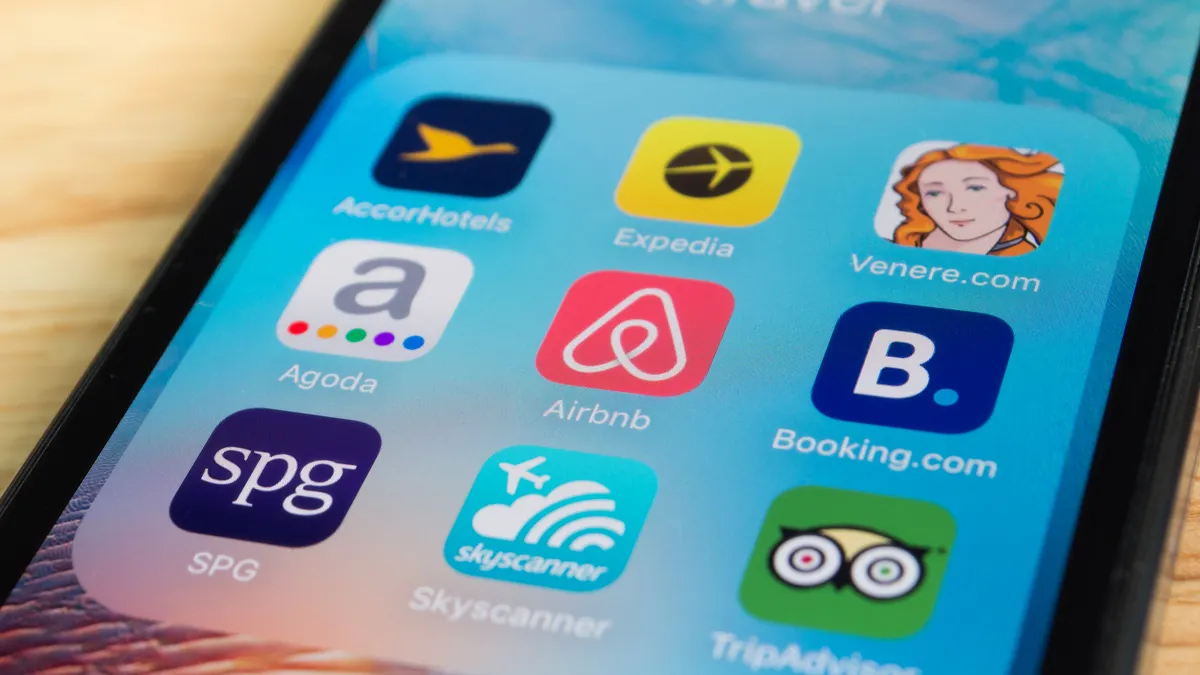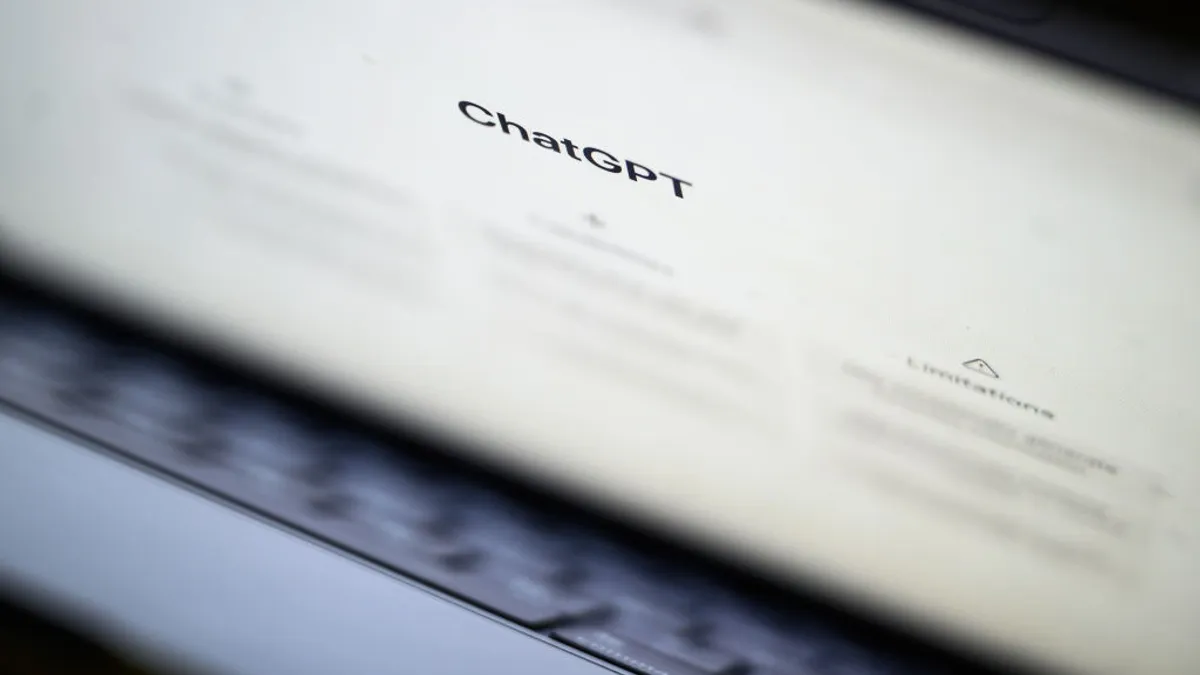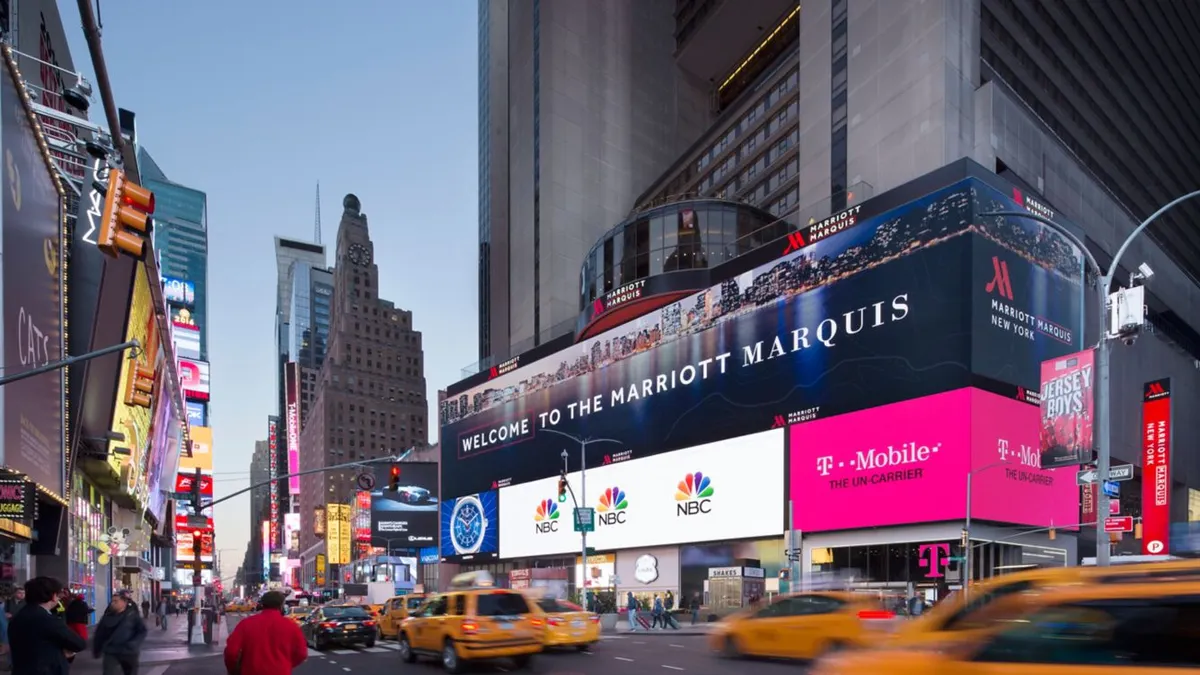Nearly three-fourths of consumers say they feel overwhelmed by their buying options, according to Accenture’s 2024 Consumer Pulse Survey.
That overwhelm is particularly felt when it comes to choosing accommodations. Accenture found that consumers feel that booking a hotel can be harder than buying a car. And some 73% of respondents said “information overload” had caused them to “give up and walk away from a hotel booking,” Emily Weiss, senior managing director and global lead of Accenture’s Travel Industry Practice, told Hotel Dive.
Fortunately, AI can help ensure that travelers don’t abandon their hotel search before they book. In an email interview with Hotel Dive, Weiss explained why it’s possible for consumers to be too inspired, and how technology can cut through the confusion to build brand loyalty.
Why choosing a hotel is complex
As hotel brands proliferate, travelers have more options to consider when planning their next trip.
But finding the right one isn’t always easy.
“Even seasoned travelers struggle to keep [hotel brands] straight,” wrote Wall Street Journal journalist Dawn Gilbertson in her travel column last year. “I mixed up Hyatt House and Hyatt Place this year when telling someone where I was staying. Don’t ask me to tell you how those are different from Hyatt Centric. What I do know is that I’ve stayed at all three this year.”
The more we enjoy browsing for inspiration, the less confident we are, because we have that much more information to try to evaluate.

Emily Weiss
senior managing director and global lead of Accenture’s Travel Industry Practice
According to Hilton Chief Marketing Officer Mark Weinstein, speaking with Hotel Dive last year, travelers often feel like they’re drowning in a “sea of similarity.”
“From countless options for flights, hotels, and activities to an endless stream of advertisements, competing claims and recommendations from and for different brands, the process of making travel decisions has become increasingly complex,” Weiss told Hotel Dive.
The impact of “information overload” is most noticeable in purchasing decisions, Weiss added. Respondents to Accenture’s survey who admitted they’d given up on a purchase partway through the process “indicates a significant loss in potential revenue for hotels and highlights the critical need for solutions that can simplify and streamline the decision-making process for travelers,” she said.
In the survey, Accenture found that the biggest drainer of consumer confidence was “over inspiration.”
“The more we enjoy browsing for inspiration, the less confident we are, because we have that much more information to try to evaluate,” Weiss said.
Booking a hotel requires several steps, Weiss added: comparing potential destinations, settling on budgets, selecting dates and more. These steps add complexity to a high-stakes decision, given 89% of respondents say a hotel or resort purchase has “a significant impact” on their overall expenses.
Enter a possible solution: the generative AI travel agent.
How AI tools can help
According to Accenture, travel is the industry where consumers are most open to using generative AI agents to assist them with purchases, with 75% of those shopping for flights and 65% shopping for hotels and resorts saying they’re open to solutions using the technology.
Generative AI agents are particularly well suited to cutting through complexity to offer a personalized recommendation, Weiss said.
In addition to scouring for the best hotel options and prices, these agents can monitor price changes in real time, integrate loyalty points and offer assistance when plans change.
For the hotel industry, though, the AI opportunity goes beyond securing bookings. Weiss believes simplifying the decision-making process can inspire greater loyalty.
“Imagine you are searching for a hotel in a new city,” she said. “Instead of being overwhelmed by countless options and conflicting reviews, gen AI can act as your personal travel influencer, providing bespoke recommendations based on your preferences, budget and location. It can consider factors such as your previous travel history, loyalty program status and even real-time data on local events and attractions.” (Accenture’s report cites Marriott International’s RENAI by Renaissance as one AI agent that can provide personalized recommendations for travelers.)
She added, “This level of customization helps travelers make informed decisions quickly and confidently, which is crucial in building trust and loyalty.”
However, travel providers wishing to employ AI agents must be aware of certain factors that may hold consumers back from the technology. Travelers who aren’t open to the technology cite concerns over personal data protection and transparency in how recommendations are generated.
To reassure the hesitant AI adopter, companies should “build trust by being transparent about how AI tools use consumer data and improve the customer experience,” Weiss said.
Deloitte has also predicted the rise of what it calls the “GenAI agent,” which will optimize bookings for pricing, loyalty memberships, cancellation policies and any additional conditions and perks.
But Mike Daher, who co-authored Deloitte’s 2024 Summer Travel Report, told Hotel Dive last month that AI hasn’t impacted the travel industry as much as some would have hoped by now — at least not yet. “The technology is just not there yet,” he said.

















